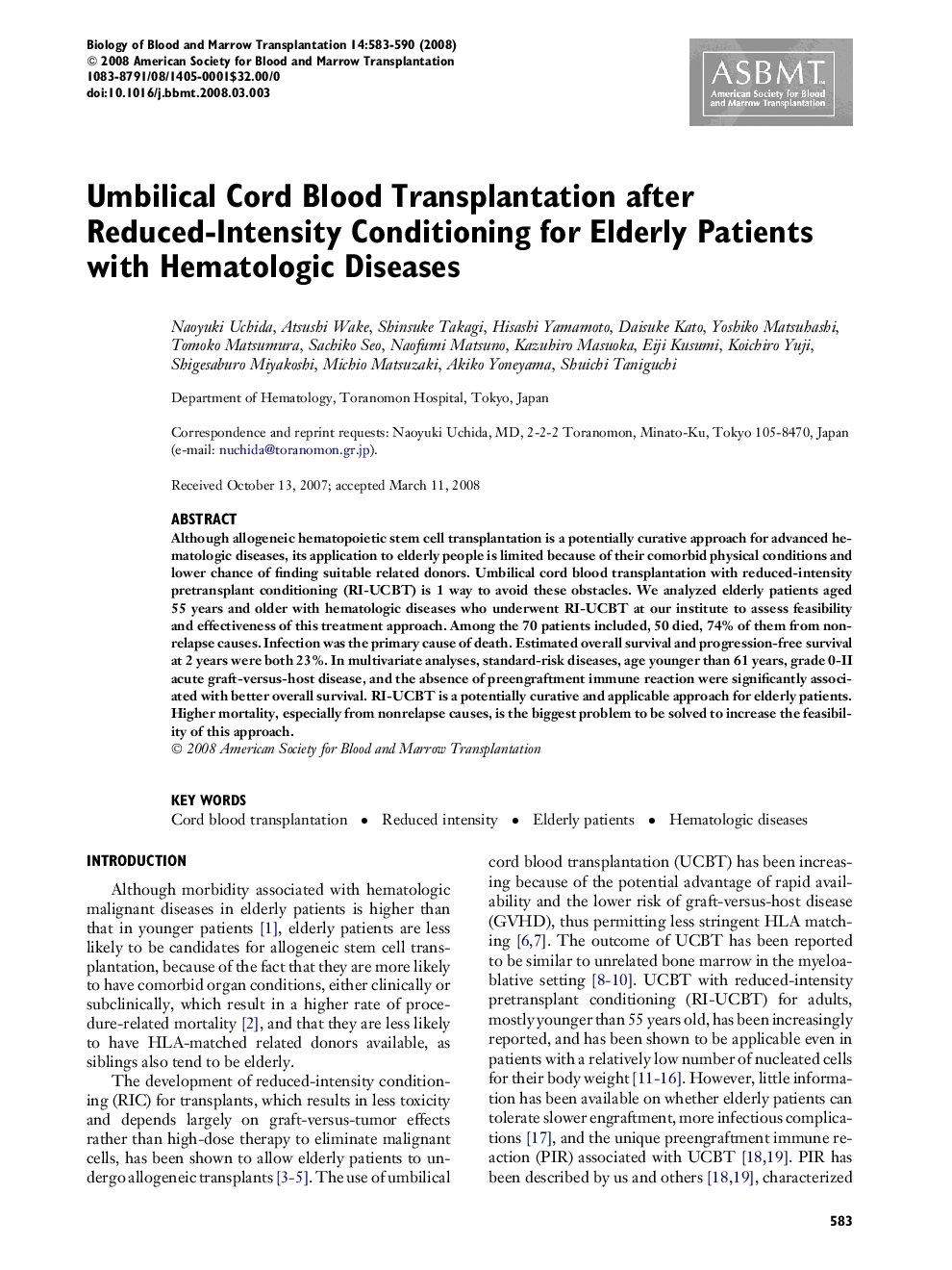| Article ID | Journal | Published Year | Pages | File Type |
|---|---|---|---|---|
| 2105780 | Biology of Blood and Marrow Transplantation | 2008 | 8 Pages |
Although allogeneic hematopoietic stem cell transplantation is a potentially curative approach for advanced hematologic diseases, its application to elderly people is limited because of their comorbid physical conditions and lower chance of finding suitable related donors. Umbilical cord blood transplantation with reduced-intensity pretransplant conditioning (RI-UCBT) is 1 way to avoid these obstacles. We analyzed elderly patients aged 55 years and older with hematologic diseases who underwent RI-UCBT at our institute to assess feasibility and effectiveness of this treatment approach. Among the 70 patients included, 50 died, 74% of them from nonrelapse causes. Infection was the primary cause of death. Estimated overall survival and progression-free survival at 2 years were both 23%. In multivariate analyses, standard-risk diseases, age younger than 61 years, grade 0-II acute graft-versus-host disease, and the absence of preengraftment immune reaction were significantly associated with better overall survival. RI-UCBT is a potentially curative and applicable approach for elderly patients. Higher mortality, especially from nonrelapse causes, is the biggest problem to be solved to increase the feasibility of this approach.
